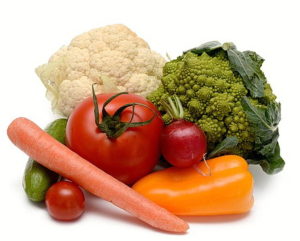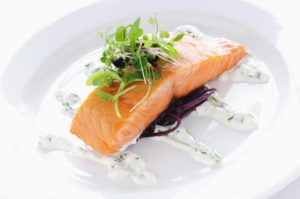
If you’ve been reading our diet and health articles, you have seen what good nutrition can do for you, so let’s extend these benefits by discussing some healthy meals for maintaining our natural well-being.
Here are some meals that cover some of the most nutritional items on the planet.
Breakfast
.
1. Mixed Greens with Tomatoes, Whole Grains, and Turmeric with a Touch of Light Dressing

Many of you are concerned about gaining weight, but this dish is a dieter’s dream. Packed with essential nutrients your body will love but low on calories.
- Granola: Loaded with fiber which helps to avoid weight gain, but read the labels! Some food items that offer granola may be high in calories, such as cereal.. With that said, this is a nutrient-packed food and contains oats, whole grains, protein, iron, vitamin D, folate, and zinc.
- Tomatoes: They say eating green vegetables are some of the healthiest veggies you can eat, but red ones are too! Enter Tomatoes, which contain a nice supply of antioxidants through the hydrocarbon lycopene. Hydrocarbon is a chemical element that contains carbon and hydrogen. Lycopene has been known to reduce the risk of heart disease and cancer. They are also a great source of vitamin C, potassium, folate, and vitamin K. So instead of just sticking with greens, get colorful!
- Turmeric – a plant that contains curcumin, which has potent anti-inflammatory effects and a strong supply of antioxidants. Because of its abundance of curcumin, turmeric can fight off indigestion, abdominal bloating, and loss of appetite.
The end result is that if you want to keep your immune system strong, add this healthy plant to your diet. Recommended by the United States Department of Agriculture (USDA) National Nutrient Database, it is suggested to take 400 to 600 milligrams of turmeric three times daily to help with inflammation relief.
2. Bowl of Whole Wheat Cereal with Strawberries, Blueberries, and Garonla Chips

Here we keep our granola but substituted the veggies with fruits. Berries to be exact. We discuss the benefits of berries below in our lunch menu, so we won’t repeat it here.
Just know that you are adding in some great nutrients when you have fruit, any fruit! The more colorful, the more nutritious. That goes for veggies too!
Lunch
.
3. Egg Salad, Strawberries, and Blueberries

- Eggs: We won’t fool you. A portion of eggs are high in cholesterol, but in 2000, the American Heart Association made the determination that healthy adults can enjoy them once per day, but they still warn that it shouldn’t surpass the total daily cholesterol limit of 300 mg; however, but there are many healthy ingredients in these chicken delights that can override this negative.
Packed with protein, lutein, choline, and B vitamins, they are good for your body overall. If eating eggs concerns you or if you have cholesterol or heart issues, talk to your doctor about eggs and if you get the go-ahead, dig in! - Blueberries

What can we say about this tasty fruit? Known as a superfood, blueberries are loaded with antioxidants, which fight off those nasty and unhealthy free radicals.
As a matter of fact, blueberries have the highest antioxidant capacity of just about every other fruit and vegetable out there. Studies have shown they may help prevent heart disease, diminish brain diseases and help with anxiety.
- Strawberries: These red delights contain two grams of fiber which improves your digestive health and as with blueberries, they fight oxidative stress which reduces our risk of acquiring illnesses such as heart disease and cancer.
Dinner
4. Turmeric Salmon with Beats, Sweet Potatoes, Guacamole, and Kale

- Salmon: This superfood is known to be one of the healthiest foods around because of its rich set of Omega-3 fatty acids. This nutritious fish also assists in maintaining eye and brain health. It defends against such illnesses as Alzheimer’s disease and helps drive back depression. Eating salmon three times a week can help you maintain your health, especially if you are in your senior years.
- Beats come from the beetroot plant and contain essential nutrients such as iron and vitamin C.
- Sweet potatoes are great for depression and anxiety. This vegetable also helps to regulate blood pressure and contains potassium, a needed macromineral for our body, as well as magnesium, which supports the immune system, among many other health benefits.
- Guacamole: You can’t go wrong with this fruit! Yes, it’s a fruit and comes from the avocado tree. It is loaded with some essential health ingredients. Here’s the rundown of guac’s benefits: Vitamins K, C, B5, B6, and E. It also contains potassium and folate.
- Kale: This hearty appetizer contains all the vitamins in guacamole as well as manganese, calcium, copper, potassium, and magnesium. All great nutritional benefits!
Add some more turmeric and you’ve got one free-radical killing machine!
Summary
The mix and match of healthy food variants are endless. It is up to your imagination how you’d like to use them. One tip is to have an assortment of different fruits and vegetables each day. The more colorful your assortments, the more the variety of nutrients that will be available, so choose our selection or change them around, but whatever food you chose, you know your body will thank you, so jump right in and enjoy!

 Photo by
Photo by